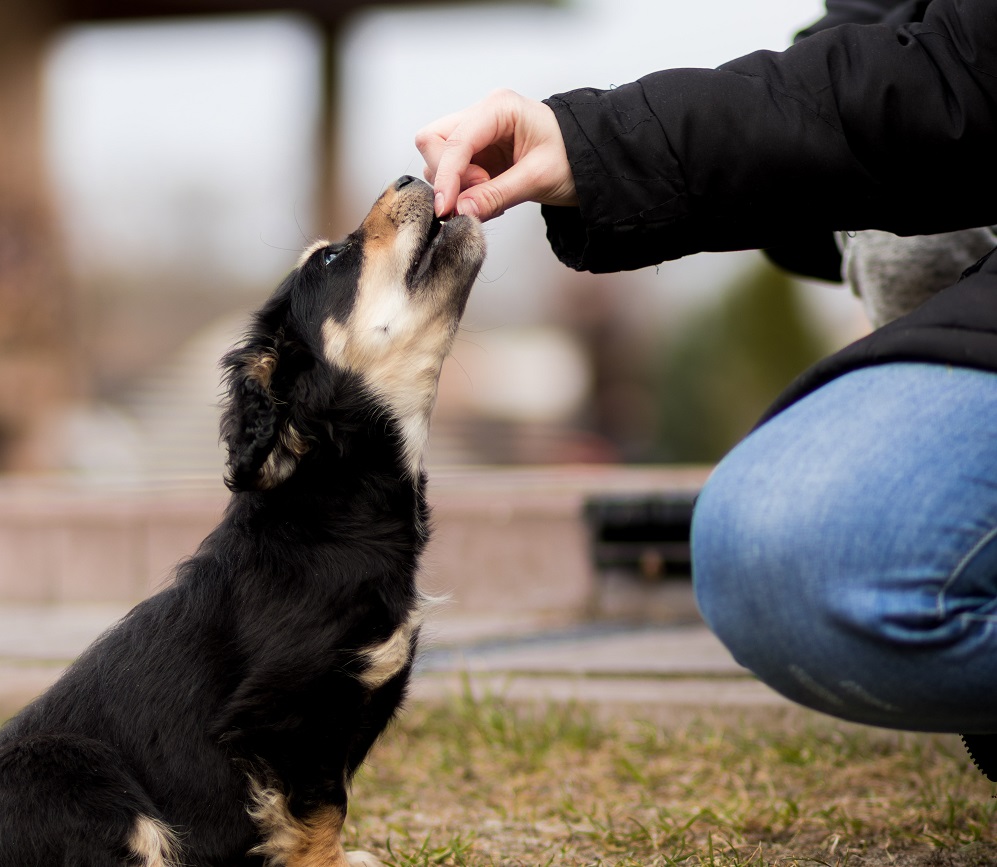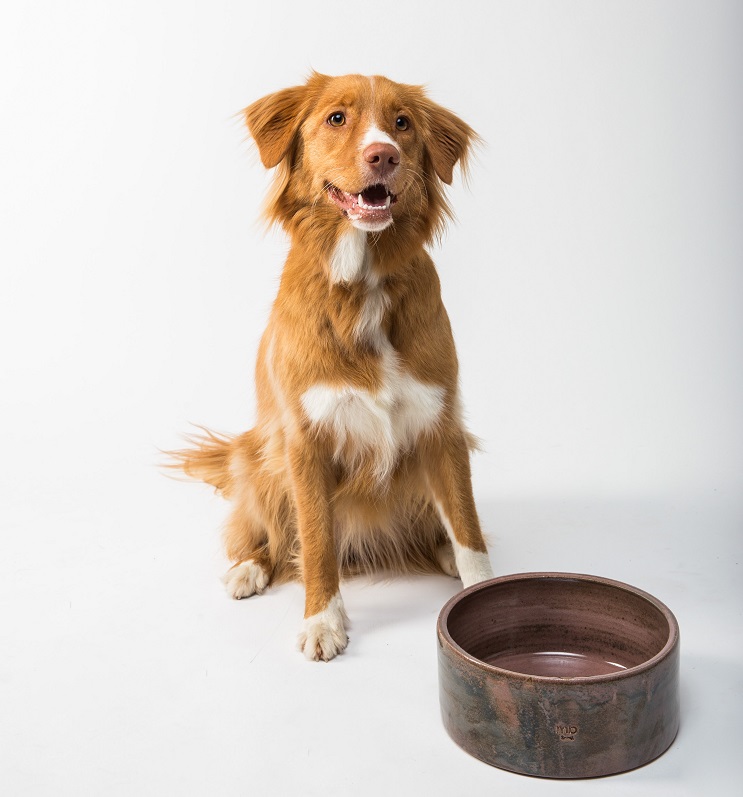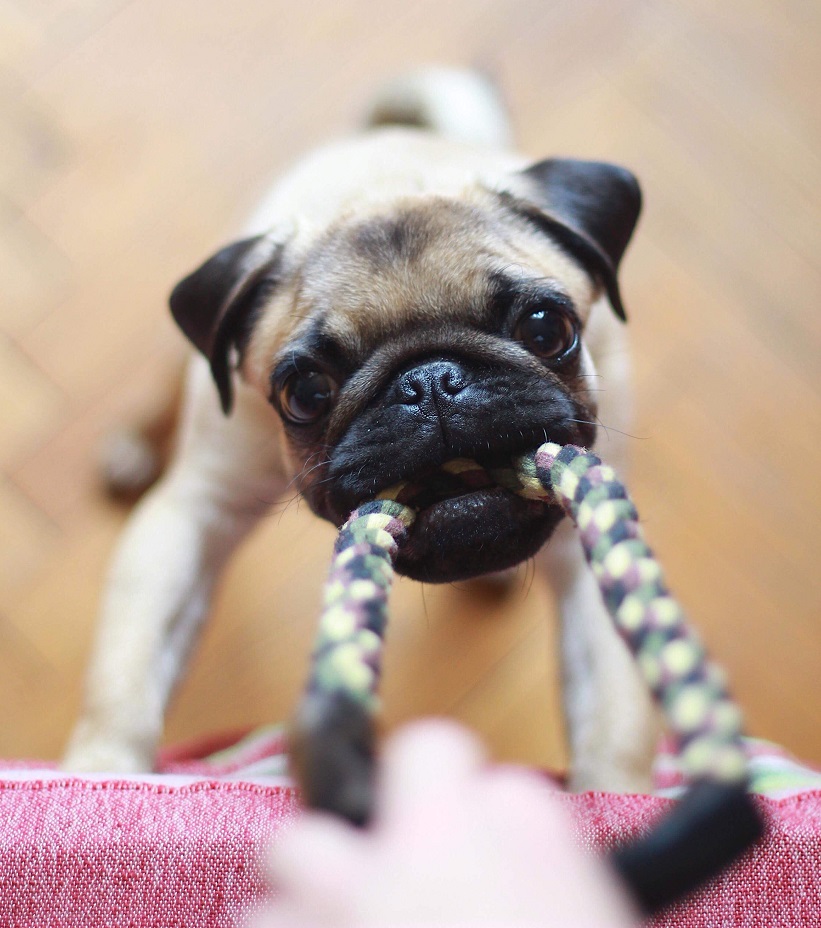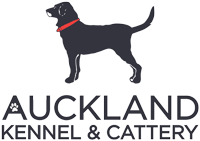
After seeing a recent article in Stuff, this month’s blog looks at dog treats.
Some experts have warned that pet foods sold as treats are suspected of causing a potentially deadly illness in dogs.
Associate Professor Dr Nick Cave of Massey University’s School of Veterinary Sciences says he wouldn’t feed his dogs imported dried beef, chicken, duck, and turkey jerky pet treats, and he wouldn’t advise other owners to do so either.
Why? Basically, because the labelling is unclear and there are so many better alternatives.
Dog treats that might do more harm than good
Cases of Fanconi syndrome, a disorder which affects the kidneys and is normally detected in dogs that had eaten things such as blackcurrants, grapes and raisins, emerged in mostly small breeds of dogs that were eating an “inappropriate amount” of dried jerky treats over a prolonged period. Many of the treats were manufactured in China.
Symptoms of the illness can include lethargy, loss of appetite, increased thirst, and more frequent urination. Once seen by a vet and taken off the treats, the dog’s health normally improves, but the disorder can cause serious illness and, in some cases, death.
What’s the cause?
Despite extensive research and testing however, no-one has been able to identify why the treats seem to cause the illness. Suspicions are that food irradiation may the cause. Treats imported from Asia are often treated with gamma irradiation to remove unwanted bacteria and improve shelf life. It is possible that changes in the molecular structure due to the irradiation process could be making the foods dangerous, especially as there are no limits on dosage when it comes to treatment of pet food.
Information makes for clearer decisions
Although nothing conclusive has been established, people should know there’s a risk. At present, there no labelling requirements in New Zealand to say if a product was irradiated.
The SPCA is in favour of transparency about ingredients, country of origin, manufacturing processes, and import requirements when it comes to pet treats.
Some researchers’ feel that the treats are not a necessary part of a dog’s diet, and if owners do choose to feed them to their pets, they should watch them closely.
Professor Dr Nick Cave is of the opinion that when it comes to his own animals, he doesn’t want to take the risk, with these treats or other irradiated pet food.

Do you really need doggie treats?
Which brings us on to the next point: are treats really necessary? Dr Cave says that when he wants to use a treat to reward a dog for obedience, he uses something from their regular diet, instead of buying something special. When he gives a treat, he wants it to have some nutritional benefit.
But he also doesn’t want his dogs to associate food with love. The best treat you can give to your dogs is time, not food. He recommends throwing a ball to them.
When training your dog, you typically, you have two things on-hand: a clicker and treats. However, only one of those things has the potential to cause to obesity and nutrient imbalances and no, it’s not the clicker.
Balancing the treats for your dog
Treats are an essential part of positive reinforcement, but you also need to be mindful of balance. Give your dog too many treats and you’ll make your dog overweight and unhealthy.
Treats should make up no more than about 10% of your dog’s daily calories. Owners of small dogs, in particular, should be careful about what treats, and how much of them, they feed their pets.
Phasing out treat dependence
When you begin training your dog, it’s all about finding a reward that your dog is willing to work for. Treats are great tools for the beginning stages of training, but you shouldn’t be relying on them for too long.
The best time to stop treat rewards will vary from dog-to-dog. But generally speaking, when your dog responds to a given cue at least 90 per cent of the time in different contexts, you need to start phasing out rewards and begin only using them occasionally and randomising the frequency.
Use a variety of reward systems to train you dog
During the phasing out of food rewards stage is the time to remember there are other ways to give your dog a treat. Throw in life rewards, such as praise and loads of pats. Mix it up and randomise.
For example, treat a 3-command streak (sit, down, sit) with quick 10-second game of tug for and then a give food treat for a 4-command phase (sit, down, release, sit, give paw) and then maybe just offer praise and a quick chuck of a ball for a single sit.
Throw life rewards into the mix
Pats and praise, going for a walk, giving a good scratch, a tug-of-war or a throw around with your dog’s favourite toy are all excellent life rewards.

Stimulating and healthy, life rewards give your dog something to look forward to for working with you, while also strengthening the bond between you, more so than just food treats ever can.
Training for life
They will also help keep your dog’s training maintained in the long run. Many of us fall into the trap of believing that once our dog has learned a few commands, training is all over, Rover. But this couldn’t be further from the truth.
Because the things we teach our dogs are a learned skill, if they aren’t maintained they will simply be forgotten if they are not continually practised all a dog’s life.
During maintenance training is the perfect time to use food rewards combined with life rewards to keep your furry friend’s motivation high.
At our kennels we know about treats
When you dog comes to stay with us at our kennels, you can be assured our pet care team of passionate animal lovers are fully trained to take care of all your dog’s boarding needs from the moment they arrive to the moment they go home again.
Dogs under our care are fed Eukanuba and Royal Canin. We are also happy to give your pet their own special dog food if you provide it. We feed balanced, nutritious pet food to our dogs and cats. To ask about our animals’ diets call 09 299 7415 or email us with your pet nutrition questions.
And because all good dogs need great treats, our staff’s job description includes cuddling, chucking balls around or playing tug of war. They are there to smooch, preen, entertain, and generally spoil your dog when you can’t. Your dogs will get lots of one-to-one time and play throughout their stay with us, and if your dog has any special toys they love, simply bring them along.
